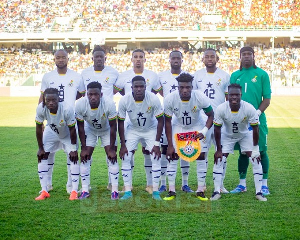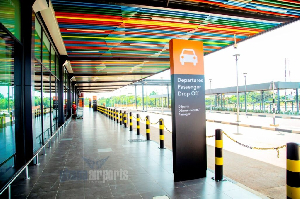Starting today, Secretary of State Hillary Clinton will be visiting 7 African countries in 11 days: Cape Verde Islands, Liberia, Nigeria, Congo DR (Goma, in particular), Kenya, South Africa and Angola. Part of the purpose of the trip is to smooth over ruffled feathers. Recall that Kenyans were miffed over the fact the President Obama skipped his fatherland and visited Ghana instead. And Nigerians felt his trip to Ghana was an insidious plot to destabilize their country. So Hillary is being dispatched to soothe frayed nerves and douse the flames. There are also genuine concerns in the Obama administration about Nigeria’s stability and China’s forays into Africa.
The purpose of the dinner at the State Department was an effort by the Secretary of State, Hillary, to reach out of the bureaucratic cocoon to independent “gurus” and seek alternative viewpoints before her trip to Africa. We were given a set of questions to respond to in order to frame the discussion at the dinner forum and help prepare her for the trip. What she should be looking for, what she should say, how she could be helpful, etc. etc. The questions and my responses are attached. I commend her highly for that. Think African ministers will do this? Pompously stuffed in 9-piece “’zoots” with protruding bellies, they know more than God. And those with alternative viewpoints? They feed them to crocodiles.
The dinner was quite extraordinary. The protocol was stultifying; everything was planned to the minutest detail. Yet the atmosphere was relaxed. There were 26 of us at the dinner table with Secretary of State, Hillary Clinton, at the center. Half of the guests were State Dept. operatives -- speech writer, policy planner, and a retinue of deputies and assistants -- assistant this, assistant that, deputy assistant this, if you know what I mean. The remaining 13 of us where the "experts." There were only 5 blacks there, including Asst. Sec. of State for Africa, Ambassador Johnnie Carson. I was the only African but, at least, it was a start.
The reason why I was invited was because Brian Phipps, Clintons policy planner, had read my book, Africa Unchained two years ago and said it had "a profound influence" on his thinking about Africa. So I asked him if it would be OK to bring two copies of my book -- one for Hillary and the other for Obama. He said who would refuse such gracious act of generosity.
I immediately took two copies along. One for Hillary which I autographed as: "I am a big fan of yours. Africans are grateful for your concern for the continent." Hey, a little fawning adulation never hurt nobody. My students do that to me all the time to get good grades. “I learned a lot from your class,” “You are my greatest teacher,” they often tell me. A quick check of the grades of those praise-singers tell a different story. Rascals.
The other book was for President Obama. I autographed it as: "This wont' get me a BEER at the White House but we are proud of you as a son of Africa. Don't mind what the Americans say." I hope Obama has a sense of humor but don’t try this with President Musugu Babazonga, President-For-Life of the Coconut Republic of Tonga somewhere in the Gulf of Guinea. He is the author of the “Green Book,” which everybody must read. All other books are banned.
I made four interventions at the dinner. I told the group that there was no need to re-invent the wheel and that the West should deal with Africa the way it dealt with the former Soviet Union. There it didn't form partnerships with communist regimes and hand over money to them on promises of reform. It helped Solidarity movements and established Radio Free Europe. Why not Radio Free Africa? Sec. of State Hillary Clinton said it is a great idea and she likes it.
I pointedly told the group that I coined the expression, “African solutions for African problems” when Somalia imploded in 1991. There were three reasons for this although I did not specify them at the dinner. First, Western solutions haven’t worked well in solving Africa’s problems. Second, her husband’s administration – the Clinton administration – hijacked the expression and never gave me credit for it. So I had to claim it back. Third, a group of us met with Johnnie Carson, the Assist. Secretary of State for Africa sometime in June. When I raised that issue, “African solutions for African problems,” at that meeting, he responded by saying that there is no such thing as an “African solution.” Since he was there at the dinner, I had to restate that position in a nice way to suggest that not all Africans expect solutions to their problems to come from the West or the U.S. Further, African problems cannot be micro-managed from Washington and it would be best for the U.S. to support initiatives Africans themselves are making to solve their own problems. I told them the generic term “Africans” is misleading and it is always important to distinguish between African leaders and the African people. The leadership has been the problems, not the people.
I stressed the importance of institutions. The six critical ones: an independent media, an independent central bank, an independent judiciary, an independent electoral commission, an efficient civil service, and a profession armed forces. I could see that Hillary was writing them down. She asked me to repeat one she didn’t get (efficient civil service). She was very attentive. Only 8 out of the 54 African countries have an independent and free media. So how do you fight corruption if you can’t expose it? Take Ethiopia, for example. A country with 83 million people has only one state-owned radio and television station.
To the consternation of everyone, I commended Hillary highly and told her I was humbled by her invitation and I wish African governments would reach out and seek alternative viewpoints. Instead, they tossed me into jail, raided my hotel room and even fire-bombed my office in Washington, DC. Hillary was listening attentively.
She is very sharp, witty and a good sport. She is quite warm and open. The dinner lasted for two hours and at the end, I gave her the book and posed for a photo. It is attached.
The reason why I am sharing this experience with the forum is two-fold. The first is to inspire young African professionals. The second is to send a message to my critics. I got invited because somebody at the State Department had read my book and liked it. So you should also put out your views and solutions regarding Africa’s future out there. Not everyone will like your viewpoint; that is a given because it comes with the territory. But that shouldn’t prevent you from writing. I am currently helping 4 young African writers: A Liberian, a Congolese, an Ethiopian and a Ghanaian write about the conditions of their own countries. If you don’t like what they or I have written, please write something better. Calling people names whose views on Africa you disagree with doesn’t solve one single problem in Africa.
George B.N. Ayittey, Economist, American University, Washington, DC
Email: ayittey@american.edu
General News of Wednesday, 5 August 2009
Source: george b.n. ayittey

















